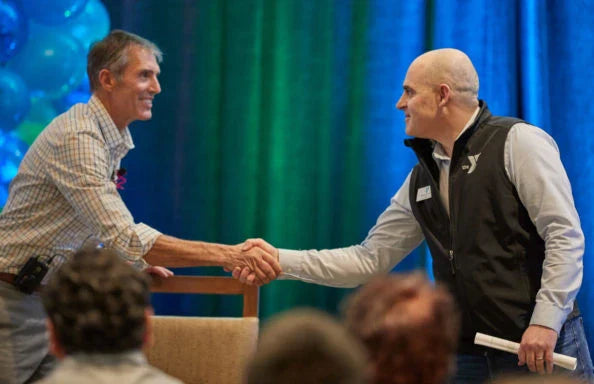The Subjective Nature of Fun in Teambuilding
Fun is subjective. It’s fleeting, personal, and often misunderstood—especially when it comes to effective teambuilding. What’s fun for one person might feel awkward or irrelevant to another. And yet, “fun” is often the first word tossed around when planning a team event. But is it the right word to lead with?
I’ve yet to run a full marathon, though I’ve completed many halves. And I know, standing at the starting line, that the miles ahead may not be “fun.” There’s anticipation, maybe a little dread, and a quiet resolve. What drives me forward isn’t the promise of laughter—it’s the promise of satisfaction. The sense of accomplishment waiting at the finish line.
Sure, there are moments of joy—chatting with a friend mid-race, sharing orange slices and stories at the post-race party. Those moments matter. But the real reward is deeper. I’ll treasure the race shirt not for the fun I had, but for the commitment it represents. The learning. The effort. The growth. The story I now carry.
That’s the kind of “fun” that matters. The kind that’s earned. The kind that sticks.
What’s Beyond Fun in Effective Teambuilding?
Time is priceless. The talent and collective brain trust of a team are close runners-up. So when a team gathers for a teambuilding event, the stakes are high. They’re not just looking for a good time—they’re looking for a return. A return on their time, energy, and emotional investment. A world-class team doesn’t settle for superficial fun. They want relevance. They want insight. They want connection.
Of course, they want to enjoy themselves. But enjoyment alone isn’t enough. The real goal is transformation. Growth. Alignment. And that takes effort. It takes intention. It takes a willingness to go beyond the surface.
When planning a teambuilding experience, start with the end in mind. Ask yourself: What do I want people to say afterward? What kind of impact do I want this experience to have?
Yes, you’ll hear the “F” word—fun. But if you’ve done it right, you’ll also hear:
- “I learned so much about myself, my team, and our business.”
- “It was really challenging—and totally worth it.”
- “It was a powerful metaphor for our work and our relationships.”
- “I can’t wait to put into practice some of the things we learned.”
These are the markers of a meaningful experience. They signal that the event went beyond entertainment and tapped into something real. Something that lingers. Something that changes how people show up the next day.
The Chemistry of Connection
There’s science behind this, too. When we give to others—whether through a small act of kindness or a shared team effort—our bodies release endorphins. These feel-good chemicals light up when we open a door with a smile, when we collaborate on a meaningful project, or when we see the tangible impact of our work.
That’s why philanthropic components in teambuilding are so powerful. They create emotional resonance. They extend the experience beyond the event itself. When a team builds a prosthetic hand for someone in need or designs a skateboard for a child with limited opportunities, they’re not just having fun—they’re making a difference. And that difference lingers.
It becomes part of the team’s story. A shared memory. A source of pride. A moment of clarity about what really matters.
Redefining ROI
Return on Investment is a familiar term in business. But in the realm of teambuilding, we need to expand the definition. ROI isn’t just about dollars—it’s about depth. It’s about the return on inspiration, on connection, on alignment.
Fun is a low bar. It should be a by-product, not the goal.
Meeting planners who hesitate to ask deeper questions may default to activities that are superficially enjoyable but lack substance. They might suggest games or outings that entertain but don’t transform. And while those events may check a box, they miss the opportunity to create something lasting.
Instead, aim for experiences that are:
- Relevant to your team’s challenges and goals
- Engaging in a way that invites participation and reflection
- Memorable because they connect emotionally and intellectually
When you do that, you exceed expectations—not just of what a teambuilding event can be, but of what a team can become. You create a ripple effect that moves beyond the moment and into the culture.
The Subjective Nature of Fun
Fun means different things to different people. For some, it’s laughter and lightness. For others, it’s challenge and growth. The key is to recognize that fun is not the destination—it’s a companion on the journey. It shows up when people feel seen, when they’re stretched, when they’re part of something bigger than themselves.
So yes, make it fun. But make it matter more.
Written By:
Todd Demorest
Chief Facilitation Officer of Odyssey Teams


Share:
Nick Harris - Ep. #14
Bob Petrello - Ep. # 15